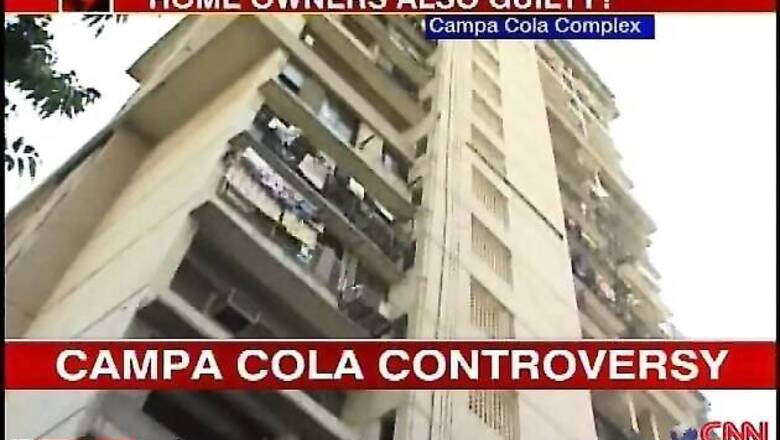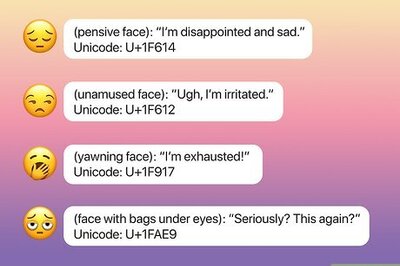
views
Mumbai: After two days of high drama, the residents of the Campa Cola society in Mumbai's Worli area can heave a sigh of relief after the Supreme Court stayed demolition of illegal flats at the complex. Even as the apex court took suo moto cognizance of the matter and passed an order staying the demolition till May 31, 2014 giving seven more months to the Campa Cola society residents to vacate the flats, questions have also been raised over the conduct of the occupants.
Not everybody is convinced that the residents of the Campa Cola society were unaware of the illegality. The BMC had issued its first stop work notice in 1984 after the developers built beyond the permitted limit of five floors. Another stop work notice was subsequently issued in 1986.
Jayant Tipnis, the architect of the Campa Cola society, says the residents were aware of the illegalities in the structures, but chose to buy these flats as they were sold at low rates.
"People knew that these flats don't have occupation permission. Even the water charges were double, municipal taxes were double," said Tipnis to prove his point.
Others like Chadershekar Prabhu, urban planner, say the residents could have easily sensed something suspicious as the flats in the housing society were available at cheaper rates. "Whether it was one third or half they were definitely cheaper than the market rates. When you know the owner of the building itself has connections with the underworld, then you should know that things are not perfect," said Prabhu.
Prabhu, who is also an activist, asks how could someone reside in a society which does not have utility supplies. "If there is no water, no electricity there must be something wrong with the building. So it is hard to believe when someone says that we didn't know anything," he added.
Even the Supreme Court in its judgement pointed towards this theory. While pulling up the residents of the society, the top court had said that they were well aware that the revised plans submitted by the architect had not been approved by the planning authority. The court said that the residents were informed by the developers in this regard too.
But for now, the residents in possession of the 90-odd illegal flats can breathe a sigh of relief until November 19 when the apex court will hear the case.
The society burst into celebrations as soon as the Supreme Court took suo moto cognizance of the matter and directed the BMC not to carry out demolitions till May 31, 2014.
The BMC had issued eviction notices to residents of the illegal floors under Section 488 of the Mumbai Municipal Corporation Act last week warning them not to obstruct the civic staff when they initiate demolition.
The residents of the Campa Cola compound have had a long legal fight since 2005 when they first went to court for water connection and regularisation and the court ordered the then municipal commissioner to take time-bound action on the case. The municipal commissioner instead of taking action against the builders served demolition notices to over 60 flats above the fifth floor.
The builders of the society - PSB Construction, Yusuf Patel and BK Gupta - were granted a permission to construct the residential towers of not more than five floors. They, however, went ahead and flouted the norms by constructing 35 illegal floors.
According to reports the flats were built by one of Mumbai's original underworld don's Yousuf Patel and were sold at the 1/3rd the market value. The demolition notices were challenged in the civil court which granted a stay. The residents, however, lost the case in the High Court in 2011 and subsequently in the Supreme Court in February 2013 when it refused to regularise the structure.
The BMC then issued a demolition notice on April 27 asking the occupants of the illegal flats to vacate within 48 hours. However, the Supreme Court intervention ensured that the residents got a five month window to vacate their houses.
Meanwhile, the Maharashtra government, which has been slow in resolving the case, said that it was just following the Supreme Court order. The state government is hesitant to promulgate an ordinance fearing similar demands from other illegal colonies.




















Comments
0 comment